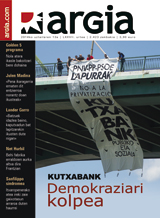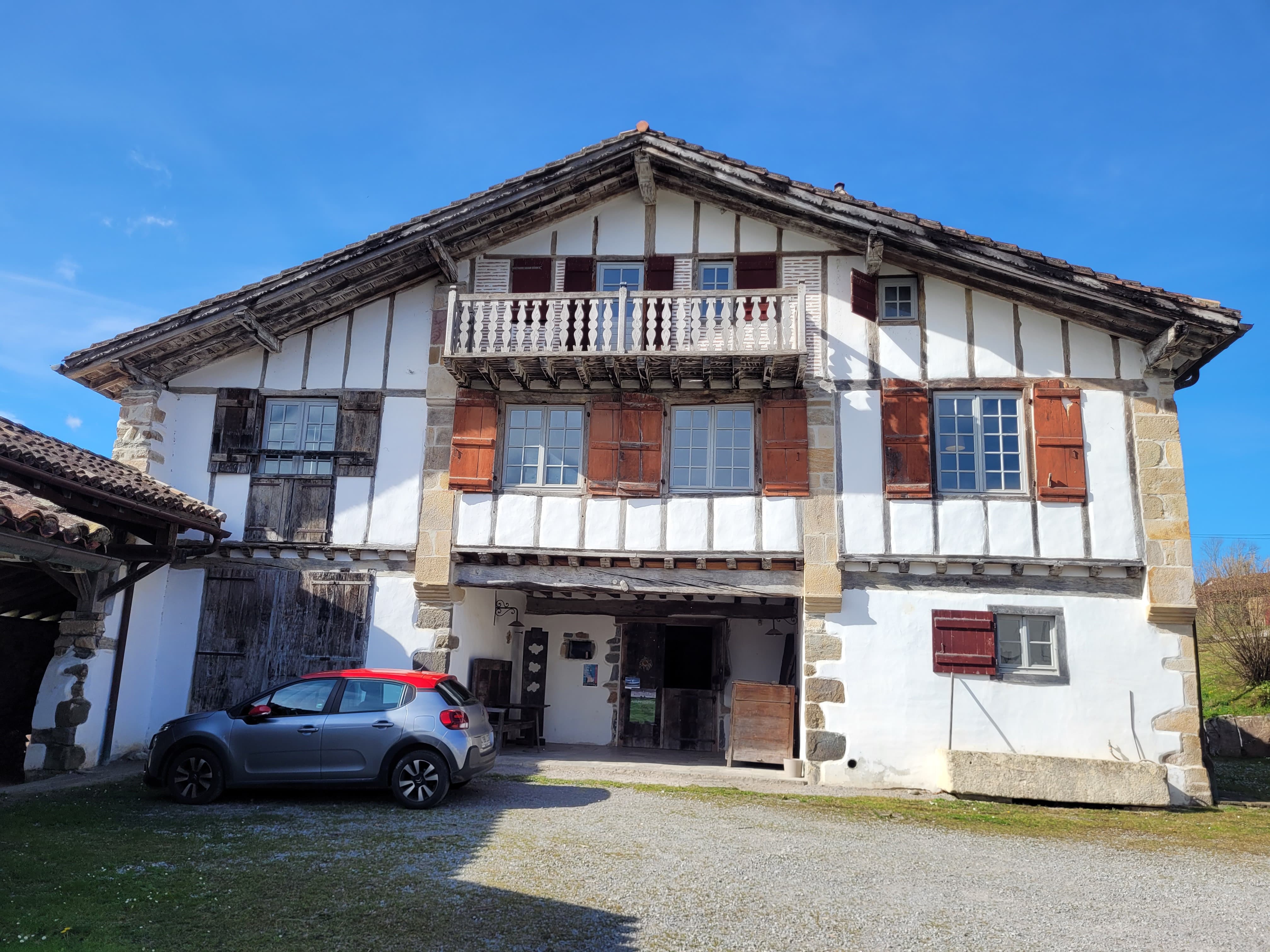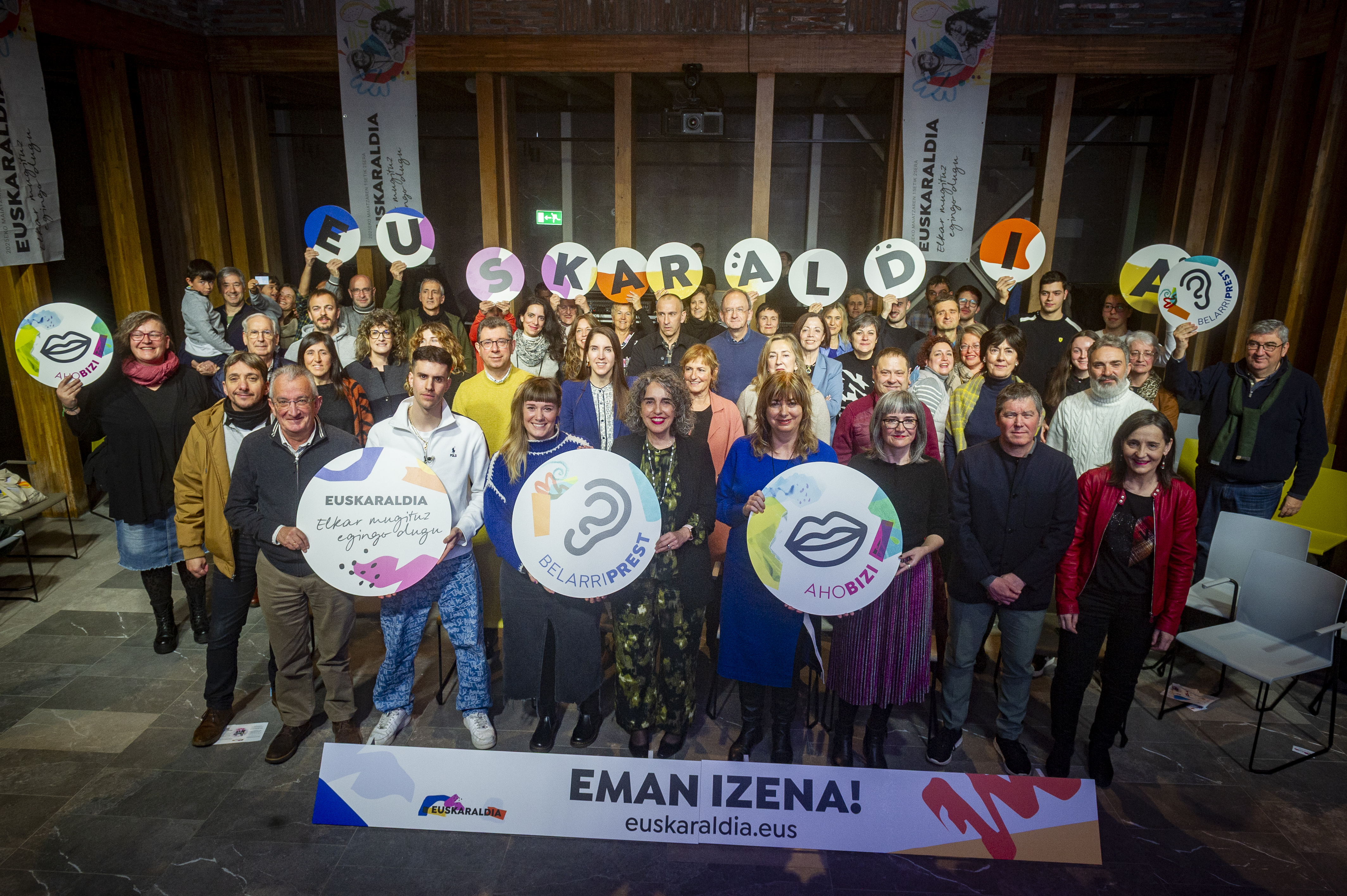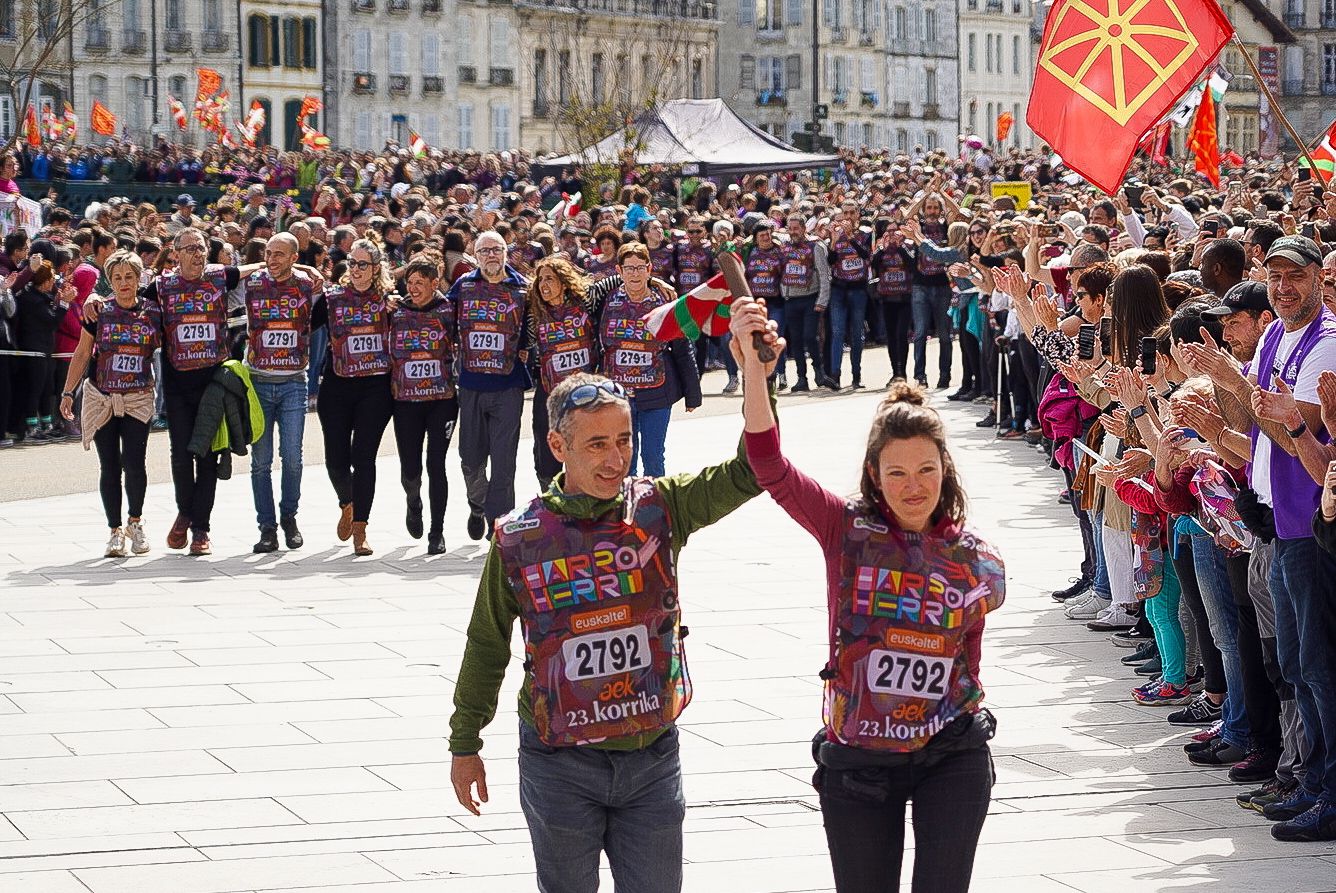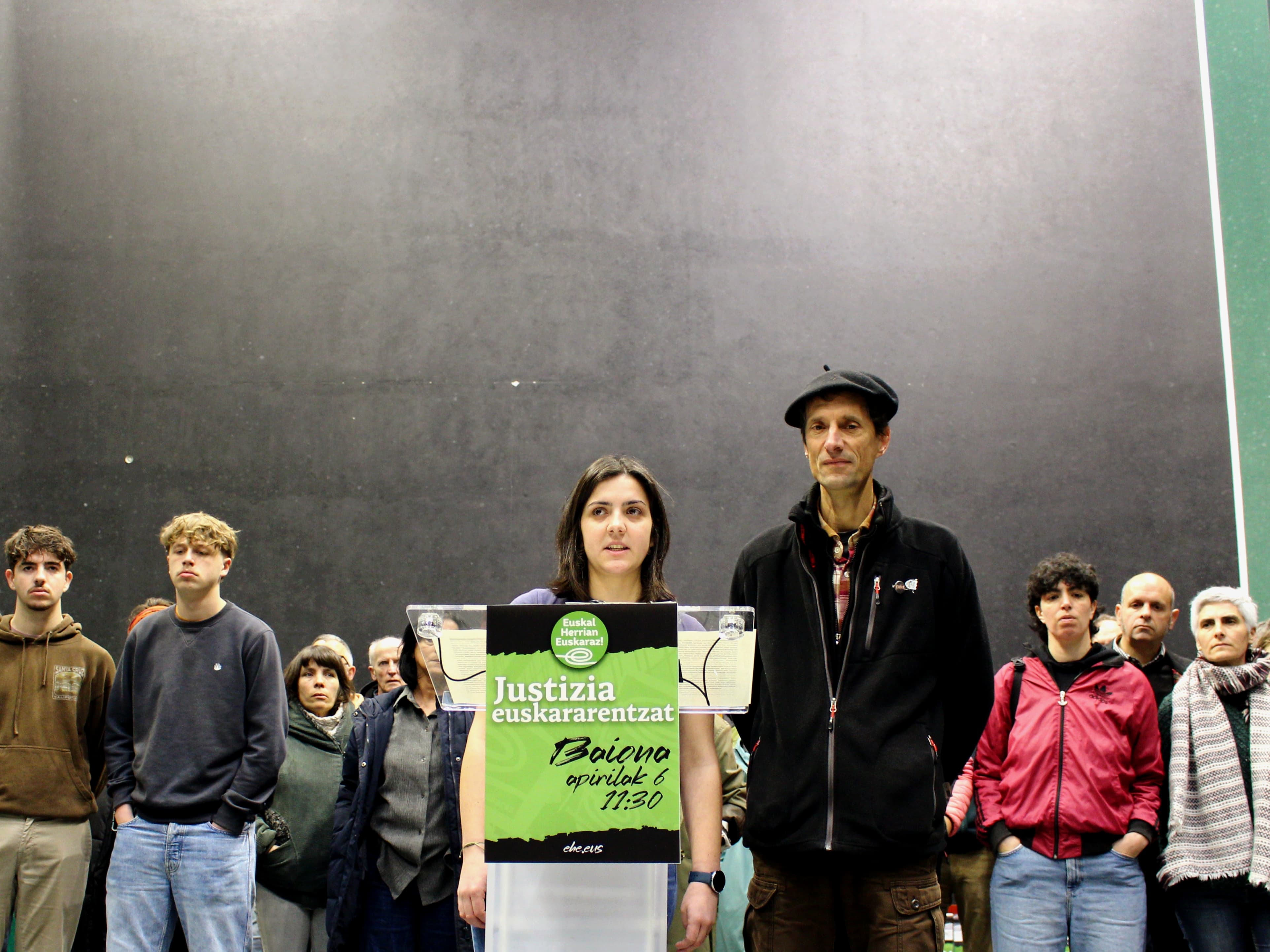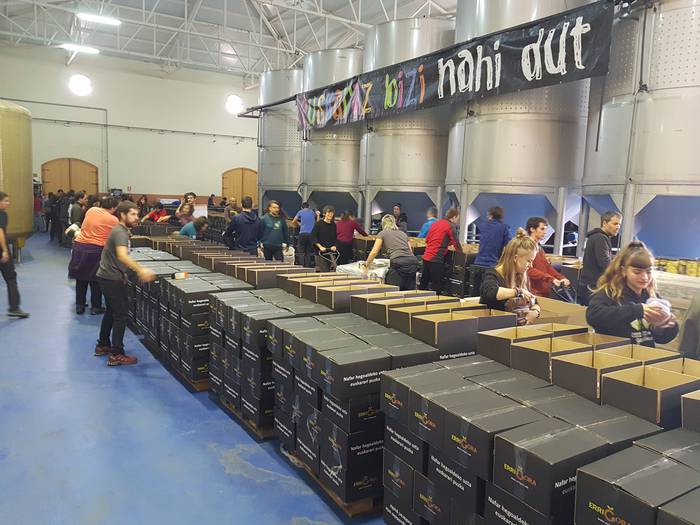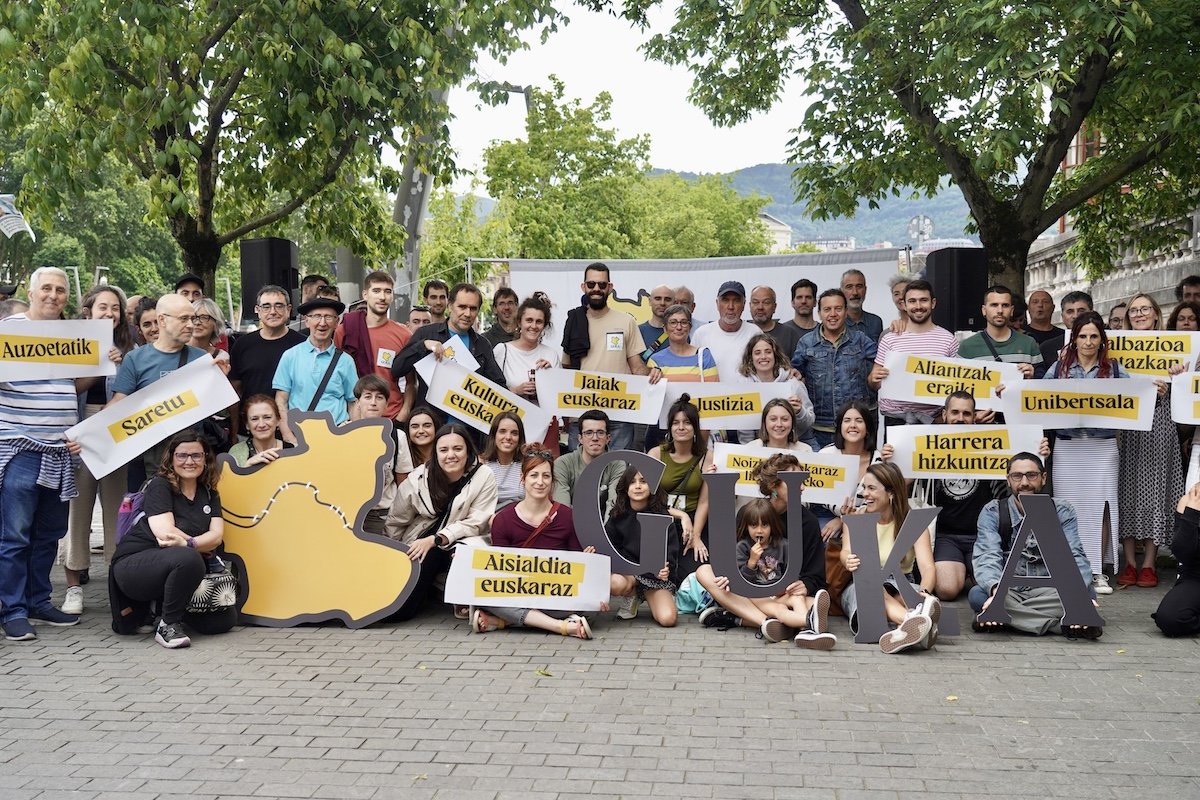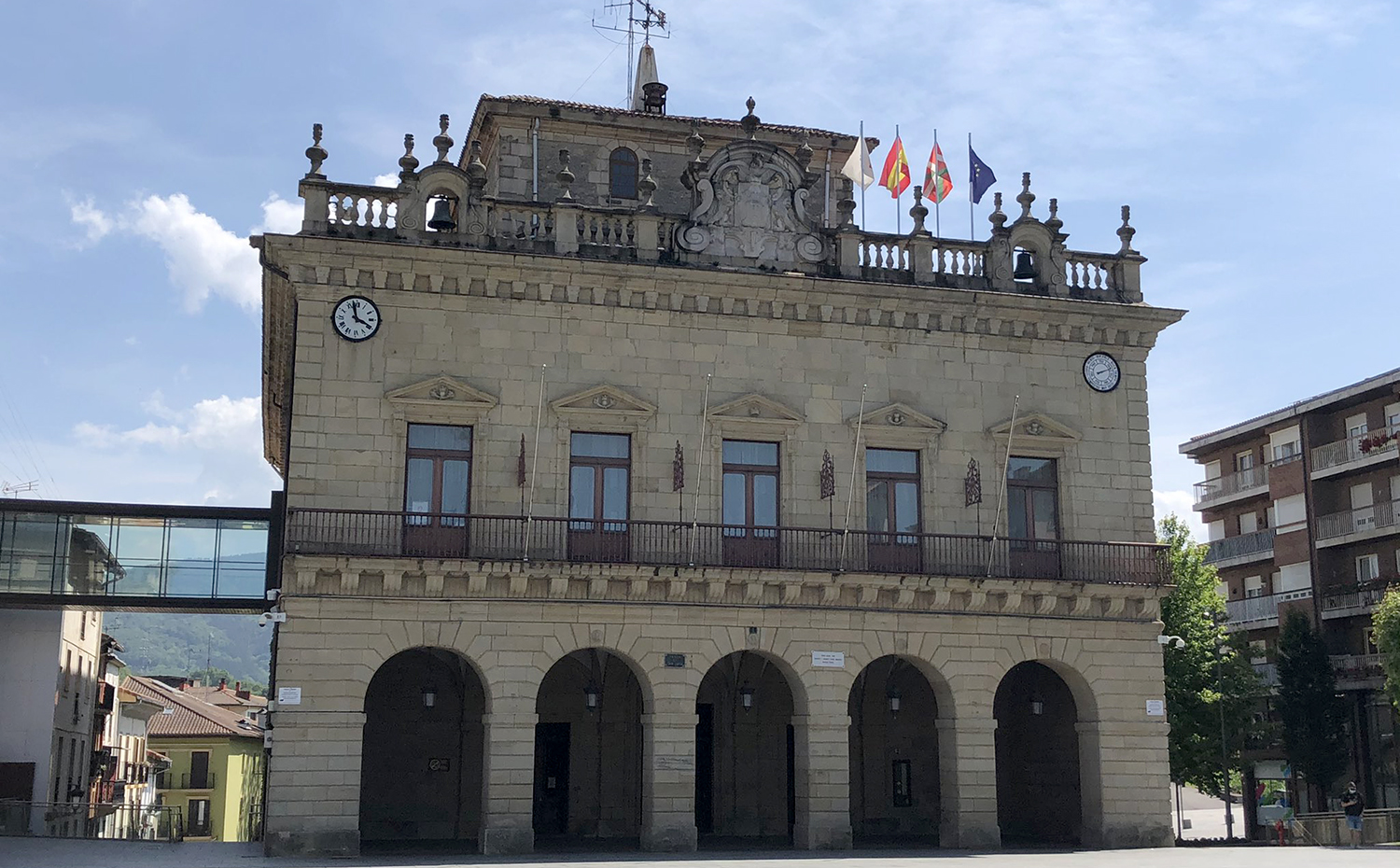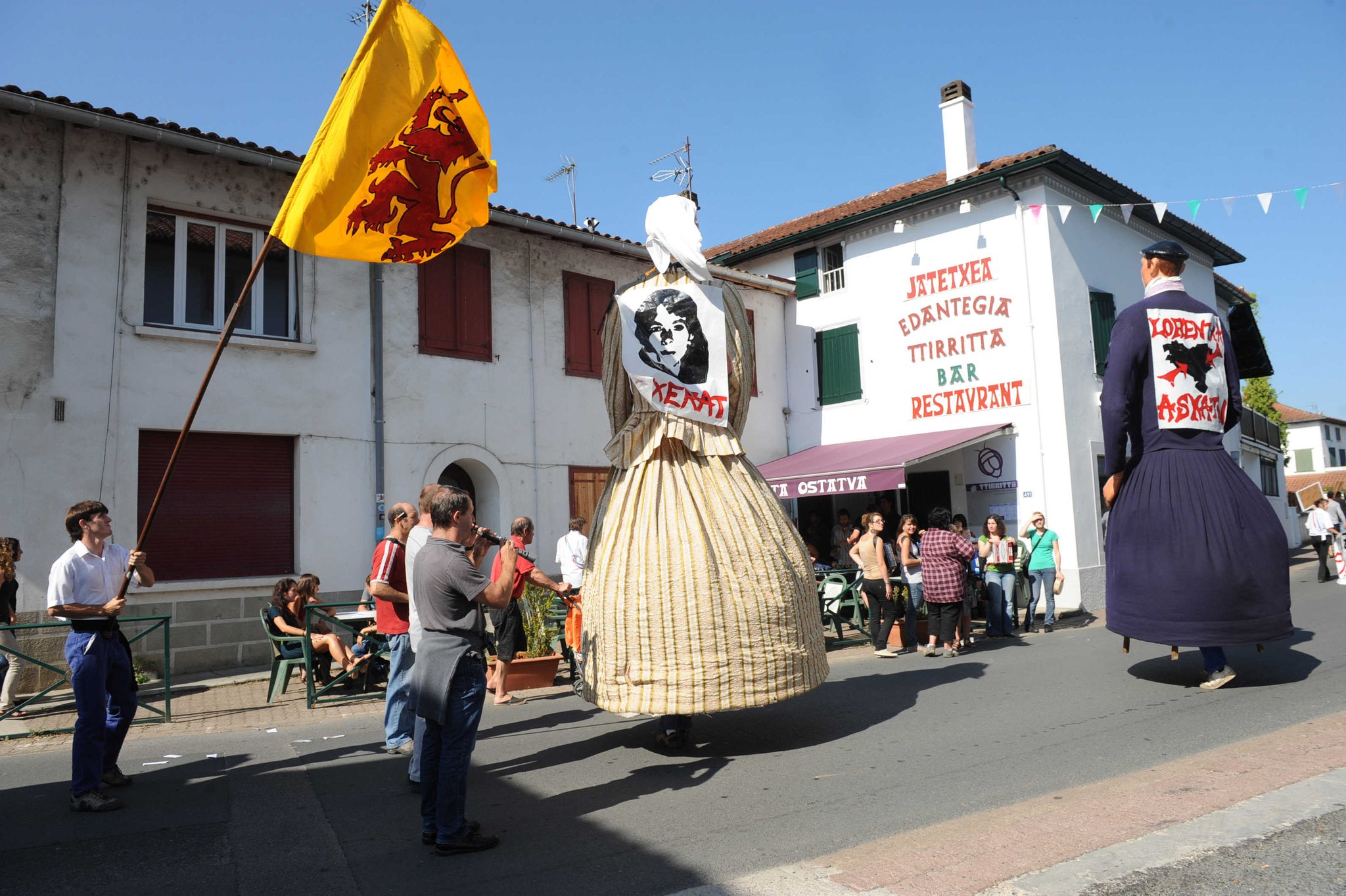Musicians from the Region of Pamplona by the Basque
- The music in Basque in the Region of Pamplona goes beyond playing a line of sounds and chords. It supposes the option of living in Euskera in a given context. This selection has brought together fourteen music groups in a project that aims to sell your album. The objective is clear: to contribute to the movement for the Basque from its natural scope, music.
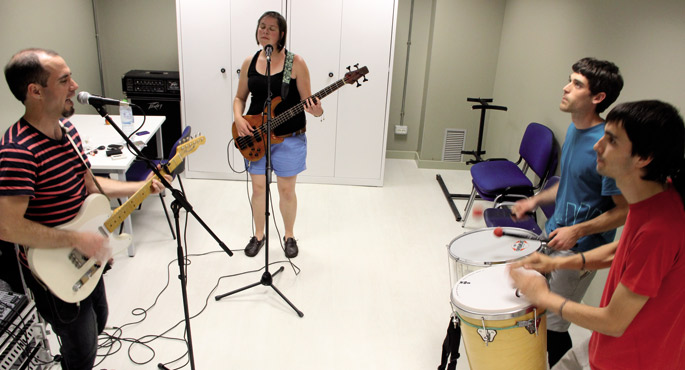
The fourteen musical groups will make available to the movement in favor of the Basque Country of Pamplona the benefits derived from the sale of its album “so that it continues to influence Pamplona”.
Julen Gil, Gaur Ez battery, has been in charge of publishing the band's disc. “I’ve worked at AEK and worked in musical groups. I thought about combining those two areas and creating a record for the Basque people.” Said and done. The members of Euskalgintza were given the idea and started to make a list of the groups that would participate in the album. “From the very beginning, all the groups thanked me for remembering with them,” says Gil, “and receiving this recognition gave us strength to move forward with the project.” The fruit of this path has been the album they have just presented, entitled Euskaraz bizi nahi dut, which gathers fourteen themes from different musical groups.
The title of the album is as clear as the intention of the participating groups. Although the situation of all musicians is different, all show a favorable attitude towards the Basque country. Some of them are Euskaldunzaharras, others are Euskaldunes at school and in the Euskaltegis, and those who have just begun to learn Euskera. But they've all wanted to make a nod to the Basque movement. Where and in Pamplona.
And it's no coincidence. Not at least Patxi Juaniz Hello! in the opinion of the group member: “In the region of Pamplona we have to speak in Basque with as much force as possible. After all, they do not make it easier for us to live in Basque, to speak in Basque, to learn, to play music, to enjoy, to have sex in Basque”. For this reason, it is clear that in music there is also a need to invest in Euskera.
In the words of Juaniz, the groups want to value the Basque: “We want to make you see that you can live in Basque, that you can do everything you want. But it is true that a special effort is needed in Pamplona.”
Part of a community
There are those who say that music is the soul of a people. Therefore, singing in Basque brings elements that go beyond the melody. Elements related to identity. Oskar Estanga, a member of the Zwekere group, is clear. In his opinion, singing in Basque means being part of a community: “Fortunately, in the region of Pamplona there is a large Euskaldun community, which goes beyond the presence of the Basque Country itself. To be Basque in the region of Pamplona is a way of living, of making a juerga, of relating to people, of seeing, of learning and of listening. To some extent, making songs in Basque is being part of that community.”
Wealth is wealth, you might think that being part of the community is a limit. Somehow enter the confined space and close the door inside. And yes, Estanga knows that singing in Basque has limits, “to the extent that limits are placed on the Basque”, but, in any case, it does not feel limited: “On the contrary, being part of this community gives me some ways, some paths filled with special emotions.”
Asked about the possibilities of groups working in Euskera, Juaniz explains the two sides of the coin: “There is a fixed route, such as txosnas, bars and festivities, but there is another reality that for us is completely unknown. They don’t call us from many projects, and I think it’s been to speak in Euskera, and, of course, because in the letters the margins shake us.”
In any case, Gil is in favour of breaking these limits. He prefers to highlight the universality of music: “When it comes to singing in Basque, we turn to an audience, to the Basques. But there are also people who are not Euskaldun who like our music. After all, it’s music and you like it.” In any case, it does not deny that there are still prejudices about music in Euskera. She has experienced the skin situation: “A friend from Alicante told me, after listening to our album: ‘I really liked it, but why don’t you do it in Spanish for more people to hear it?’
Despite the repeated opinion, Gil believes that a success cannot be achieved by singing in Euskera because it is a false myth. And look around. “There are groups, such as Fermin Muguruza or Berri Txarrak, who have taken great strides in the world singing in Basque. If the music is good and people like it, enough.”
Precisely, they wanted to take advantage of the strength that music has to give a boost to the Basque country, as it can become a powerful musical tool. An instrument that influences feelings. Juaniz realizes this by looking back: “I’ve grown up listening to His Ta Gar and Negu Gorriak, and of course, they have influenced me. Listening to Euskera in music and knowing letters awaken many feelings. This is important because, after all, if the Basque is alive, it will be because it is used, because a new culture is created in Euskera”.
Gil agrees to highlight the gift music has to reach people. “The entrance of music to people’s houses, their presence on the street or the possibility of being heard in Euskera on the radio can be framed within the movement in favor of the Basque”.
But what does music have to be a valuable instrument? To do this, Estanga has an answer: “Music is said to be harmony, melody, unity and movement. For me, that's not a struggle, it's a life. And because music is life, it proves that we're alive. We can call that struggle, or celebration of who we are. And to that extent, we want to continue to celebrate.”
The album that you have just published covers both the struggle and the celebration. Reflection of the people who have taken the tools in their lap every day and have chosen music in Basque. Because they want to live and make music in Basque.
Euskaraldiaren hamaikakoa aurkeztu dute Nafarroan: Julio Soto bertsolaria, Edurne Pena aktorea, Julen Goldarazena musikaria (Flakofonki), Claudia Rodriguez Goxuan Saltsan taldeko abeslaria, Eneko Garcia (Albina Stardust), Yasmine Khris Maansri itzultzaile eta kazetaria,... [+]
Euskalgintzak Senpereko Larraldea etxea faltan botako du. Uda gabe, Bertsularien lagunak, bertan gelditzen den azken elkarteak, lekuz aldatuko du eta etxea hetsiko dute. Euskararen, euskal kulturaren eta arteen ohantzea izan da Larraldea, urte luzetan Andoni Iturrioz mezenasak... [+]
Horra Libération egunkariak berriki argitaratu duen idazkia:
“Bayonne” bukatu da, Libérationek “Baiona” idatziko du
Hiri baten izenaren erabilpena ohiturazkoa delarik, egunkari batean izen horren erabilpena aldatzea zaila da. Alta, irakurleen... [+]
Gasteizen egin duten ekitaldian ireki dute izen ematea, laugarren edizioa hasteko bi hilabete falta direla. Erakundeetako ordezkariak, herritarrak eta entitateetako kideak agertu dira, besteak beste. Euskaraldiaren koordinazioa Euskal Herriko erakunde publikoen eta Taupa... [+]
Korrikaren "bihotza eta burua" erakutsiko ditu dokumentalak. Proiektua gauzatzeko, herritarren babesa "ezinbestekoa" izango dela adierazi dute AEK eta Mirokutana ekoiztetxeak, eta apirilaren 25era bitartean crowdfunding kanpaina bat abiatuko dute jalgihadi.eus... [+]
25 bat eragilek adierazi diete elkartasuna apirilaren 11n Baionako auzitegian epaituko dituzten Intza Gurrutxaga eta Gorka Torre Euskal Herrian Euskaraz taldeko kideei. Egun batzuk lehenago, apirilaren 6an Baionan eginen den manifestazioan parte hartzeko deia ere luzatu dute.
Martxoaren 10etik 26ra izango da udaberriko kanpaina. 'Beste modura, denona de onura' lelopean arituko dira gertuko ekoizpena, banaketa eta kontsumoa babestu eta sustatzeko, ager zonaldean euskara hauspotzen duten bitartean. Apirila amaieratik aurrera jasoko dira... [+]
Otsailaren 28an Hendaian eman dio hasiera kanpainari Herri Urratsek. Euskararen transmisioa bermatzen duen Seaska babestea da helburua.
Gukak “Bilbo erdalduntzen duen makina” ikusaraziko du kanpainaren bidez. 24 orduz martxan dagoen makina salatuko dute, eta berori “elikatu eta olioztatzen dutenek” ardurak hartzea eskatuko dute. Euskararen aldeko mekanismoak aktibatzea aldarrikatuko dute.
Hamahiru ZirHika kide batu dira hitanoaren erabilera aldarrikatzeko eta antolakundearen ekintzen berri emateko. Azalpenak Badihardugu elkarteko Idoia Etxeberria eta Galtzaundiko Uxoa Elustondok egin dituzte. Horiei, Andoni Egaña eta Amaia Agirre bertsolariak eta... [+]
Gabonetako argiak pizteko ekitaldia espainolez egin izanak, Irungo euskaldunak haserretzeaz harago, Aski Da! mugimendua abiatu zuen: herriko 40 elkarteren indarrak batuta, Irungo udal gobernuarekin bildu dira orain, alkatea eta Euskara zinegotzia tarteko, herriko eragileak... [+]









